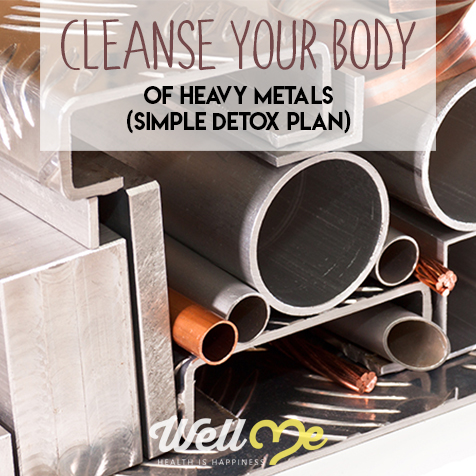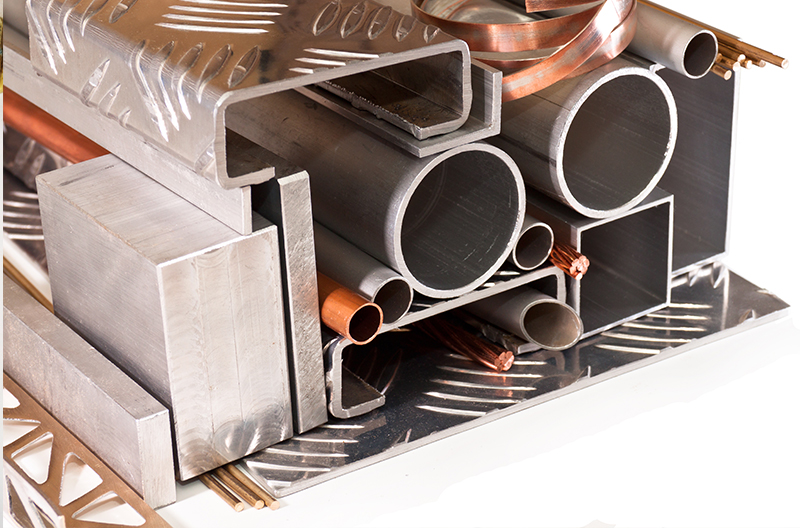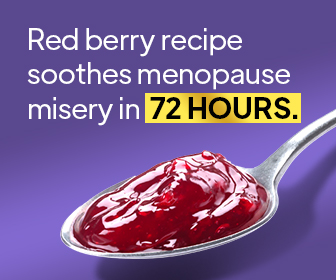There has been a lot of hype surrounding the presence of heavy metals in foods such as fish, or from environmental sources like pollution. While there is a real risk of consuming too much of these compounds, cleanse protocols have attracted controversy.
Cleanse protocols attempt to reduce the presence of toxins in the body, supposedly improving health and wellbeing. In this article, we’re going to take you through everything you need to know about cleansing, cleanse diets, and how to really rid your body of heavy metals – all without selling any cleanse products or detox teas!
Toxins, Toxicants, and Toxicity
The ambiguity surrounding cleanses and cleanse diets tends to hinge on the idea of poorly-defined ‘toxins’. Despite the media buzz surrounding toxins, there is almost no actionable definition provided by those in the field of detox and cleansing products or diets. So, what is a toxin? Loosely-defined, a toxin is a naturally-occurring poison that has harmful effects on the body.
Toxicants are a more specific group of chemical compounds that enter the body through food, drink, and air. These compounds are man-made and are often the subject of sensationalist headlines because of it. Toxicants include pesticides, preservatives, and other artificial additions to food. Toxicants are man-made compounds, but they should not be confounded with healthy food additives like artificial colors, or other additions such as beet juice extract.
When we look at cleanse diets, toxins are used to describe a wide variety of different compounds from preservatives and emulsifiers to heavy metals, pesticides, or any form of synthetic chemicals. First, it is important to note that synthetic chemicals and preservatives are not inherently unhealthy – many should be limited within the diet, but their consumption is not unhealthy by itself. Second, being artificial is no guarantee of being unhealthy and being natural is no guarantee of being health-promoting. Compare arsenic and synthetic Alpha-GPC – arsenic is totally natural but extremely poisonous, whereas artificial a-GPC is very healthy but produced in industrial labs.
When talking about toxicity, heavy metals are a real concern that should be treated as such. Be careful when you’re met with a claim about “cleansing toxins” – ask which compounds. You can cleanse your body of heavy metals because they exist and have scientific evidence surrounding them, which is why we’re going to discuss them specifically, and what you can do to improve your health by reducing undesirable metals from your system.
Heavy Metal Detox: Cleansing Diets
The first thing to avoid is any commercially-produced cleansing diet, detox diet, or supplement to this effect. Very few chemicals are able to actively reduce toxins in the body, and they tend to be aimed at counteracting excessive consumption of dangerous chemicals. For example, activated charcoal can be considered a “detoxifying agent” because it removes toxins from the body, but it only removes one key toxin from the body in cases of overdose or poisoning (acetaminophen poisoning, specifically).
As we will discuss, dieting is a great tool for overall health and plays a key role in the development of a balanced, healthy body free from toxins, but no number of green smoothies or expensive teas will cleanse your body of toxins.
Does the Body Need Cleansing? The Basics
Heavy metals tend to enter the body through tainted water or low-quality food sources. They are found in high concentration in poorly-farmed fish, but can be found in almost any poor-quality food item. Lead poisoning has many potential sources[1]:
- Plant foods grown in high-lead soil
- Old lead-based paints
- Poor quality water supply
- Game that has been shot with Lead bullets
- Interacting with lead in a professional capacity (e.g. factory worker)
- Poor-quality toys and trinkets that use lead
There are many ways to interact with lead in your day-to-day life, which is part of what makes it such a persistent and worrying health concern. However, lead poisoning is not the only heavy metal that you may want to cleanse from your body. Similarly, mercury poisoning has been associated with a diet high in poorly-farmed fish products like sardines and tuna.
The real problem with defining the need for cleansing the body of heavy metals is that you don’t often need to. Heavy metals are not a specific category of dangerous food compounds, rather they are examples of common nutrients you might already know: minerals. Common minerals like chromium, zinc, and even iron can be considered toxic in sufficient doses.
With health concerns like heavy metal toxicity, the key factor is the dosage – any mineral sufficiently dosed can pose serious health risks. This is why cleansing is so rarely a problem – the body is prepared to deal with mild overdoses of these compounds and the liver and kidneys provide a reliable filtration system. In rare cases where heavy metal poisoning does occur, medical intervention is often the best solution.
“Cleansing” Your Body of Heavy Metals
Even in cases of non-medical heavy metal dosage, there are some benefits to improving your ability to reduce the content of certain metals like iron, which can cause digestive problems when consumed in excess. However, be sure that you’re not causing deficiency – deficiency in heavy metals is often more damaging than a mild overdose.
While we’re generally skeptical of cleansing protocols, there are legitimate ways that you can provide your body with nutritional support for the removal of heavy metals. Compounds that aid in this process are called chelating agents, and are often used in hospitals for dealing with cases of lead and mercury poisoning[2].
Chelating agents are compounds that bind to heavy metals in the digestive and circulatory system to remove these harmful metals from the body. As mentioned above, synthetic chemicals can play an important role in improving health and wellbeing – chelating agents tend to be synthetically produced but play an active role in the reduction of genuine toxins within the body.
The problem with chelating agents is that they tend to excessively reduce the circulating levels of important minerals such as iron and zinc. As mentioned above, deficiency in these minerals is an easy way to expose yourself to some unpleasant symptoms. Deficiency is the greater concern for these elements than surplus or overdose[3].
Furthermore, many chelating agents are controlled substances. Whilst you may be able to address an iron deficiency at home through supplementation, you’d struggle to acquire an effective dose of sophisticated chelating agents – they’re simply not for sale.
Clearly, it is important to avoid excessive consumption of heavy metals, but also important to avoid clinical-strength chelating agents. Not only are these compounds difficult to find, you are unlikely to need this strength and even less likely to be safe when using them. For this reason, it is important to utilize tried-and-tested methods of cleansing to improve your health and wellbeing.
Cleansing that Actually Works (Dietary Guidelines)
There are many ways to improve the filtration of heavy metals from your system. These tend to center around reinforcing existing systems that filter these dangerous compounds from your system. This includes diet, hydration, and supplementation.
Water is the best place to start when filtering heavy metals. The liver and kidneys filter heavy metals through the urinary system to clear the body. Drinking more water increases your ability to filter these metals and increases the rate at which they leave the body. If you’re looking to cleanse the body, this is central to the way that cleansing really works.
Dietary fiber is another way that you can improve the removal of heavy metals and other real toxins from the body. As with water, dietary fiber contributes to the rate of binding and removal of heavy metals from the digestive system. Dietary fiber is the “bulk” that binds to water and other substances in the digestive system, aiding in the removal during bowel movements. An increased quantity of fiber in the diet means an increased net removal of heavy metals, water, and other compounds.
Vitamins and minerals should be kept in an effective balance to combat the excessive retention of heavy metals. Many minerals are associated with the proper absorption and metabolism of others. For example, deficiency in copper can cause poor iron metabolism which is associated with an excessive concentration of iron in the wrong parts of the body[4]. Improving your vitamin and mineral intake can balance out these deficiencies and contribute to a healthier overall environment within your body.
Plant foods like fruit and vegetables are nutrient-dense and contain many vitamins and minerals relative to both their weight and calorie content. They are also the only source for ‘phytonutrients’ – a class of nutrients similar to vitamins that have wide-ranging health benefits. Phytonutrients play many roles in the body from general anti-inflammatory to organ support, and they may even provide benefits in the digestion and removal of heavy metals and other harmful compounds from the body. A diet that is rich in unprocessed plant foods like berries, dark green vegetables, and whole grains is a great way to increase your health and wellbeing.
Certain supplements may contribute positively to this process. Supplements that target specific mineral overdoses are rare, but the best approach is boosting the natural function of the liver and kidneys to ensure that they are managing your resting levels of heavy metals. As mentioned above, a certain quantity of serum metals is essential for proper health, wellbeing, and optimal function. Boosting the health of these vital organs is a great way to ensure that you are remaining at safe circulating levels of heavy metals without causing essential mineral deficiency.
There are a number of supplements that can produce a positive effect on these organs and their ability to cleanse your body of excessive heavy metals. These supplements can provide a great addition to a well-balanced diet, and have health benefits above and beyond heavy-metal cleansing. Here are some examples:
- Glutathione (especially through N-AcetylCysteine)
- Milk thistle extract
- Vitamin C
- Vitamin D (especially D3 supplements)
- Vitamin E

Summary: What Should You Do Now?
Cleansing your body of heavy metals is a delicate process – you have to find a balance between removing excess heavy metals and avoiding deficiency in essential minerals. The best way to achieve this is to boost the efficiency and function of the body’s natural filtering processes. Improving your natural metal-cleansing organs, the kidneys and liver, is a matter of improving your nutrition and hydration. Certain supplements can also improve the natural metabolism of these heavy metals or their removal from the body.
Chelating agents are another option when heavy metals need to be removed rapidly. However, these medical-grade compounds are difficult to acquire and can easily strip your body of essential nutrients like iron and zinc. This is another example of how “cleansing” heavy metals is only relevant for those who are suffering from an advanced case of overdose or genuine heavy-metal poisoning.
References
- [1] Duruibe, J. O., M. O. C. Ogwuegbu, and J. N. Egwurugwu. “Heavy metal pollution and human biotoxic effects.” International Journal of Physical Sciences 2.5 (2007): 112-118. <http://www.academicjournals.org/article/article1380209337_Duruibe%20et%20al.pdf>
- [2] Flora, S. J. S., Megha Mittal, and Ashish Mehta. “Heavy metal induced oxidative stress & its possible reversal by chelation therapy.” Indian Journal of Medical Research 128.4 (2008): 501. <http://search.proquest.com/openview/f8045b5e0c268510d6ef5f2839545c11/1?pq-origsite=gscholar&cbl=37533>
- [3] McLean, Erin, et al. “Worldwide prevalence of anaemia, WHO vitamin and mineral nutrition information system, 1993–2005.” Public health nutrition 12.4 (2009): 444-454. <https://www.cambridge.org/core/journals/public-health-nutrition/article/worldwide-prevalence-of-anaemia-who-vitamin-and-mineral-nutrition-information-system-19932005/E201EDE33949AF3D632F6596052FCF8F>
- [4] Huskisson, E., S. Maggini, and M. Ruf. “The role of vitamins and minerals in energy metabolism and well-being.” Journal of international medical research 35.3 (2007): 277-289. <http://journals.sagepub.com/doi/abs/10.1177/147323000703500301>








